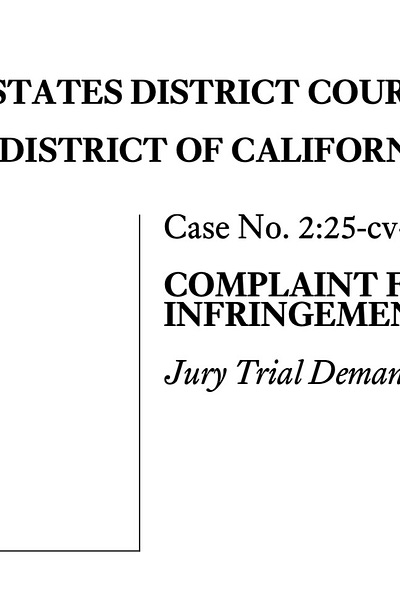Just Because You Are IN the Photo, Does Not Mean You OWN the Photo
PLUS: Denmark's Legislature Moves to Defeat Deepfakes
First, some audio greetings…
Just Because You Are IN the Photo, Does Not Mean You OWN the Photo
This case is an interesting one. In May, photographer Edwin Blanco filed a copyright infringement suit against actress/celebrity Jennifer Lopez in Federal Court in Los Angeles after Ms. Lopez re-posted photos of herself on social media (taken and originally posted to social media by the photographer) allegedly without permission or license.
Again, Ms. Lopez was the subject of the photographs, but they were taken by Mr. Blanco. It appears that he was not hired by either Ms. Lopez or her management.
The Complaint alleges that Mr. Blanco registered the photographs in question with the US Copyright Office.
From the BBC report:
The singer and actress shared pictures on social media of herself arriving at the Amazon MGM Studios and Vanity Fair Party in Los Angeles the night before this year's Golden Globes in January.
Photographer Edwin Blanco and Backgrid, the agency he was working for, have each filed lawsuits saying they own the copyright to two photos.
Read from the BBC more here. Petapixel also reported on this.
You can read the complaint below:
Remember, it is a complaint filed in court, so these are allegations only at this point.
For the readers, this situation is generally instructive. On the surface, this story sounds like something that happens thousands if not millions of times everyday: reposting photos from someone else’s social media channels. Court decisions in copyright disputes are very fact specific, and the results of the case often hinge on one or two facts in the situation being litigated. Compare the following two scenarios - for each, assume that the reposting has a commercial intention/purpose:
SCENARIO A: You see a photo in a post on a friend’s Facebook page, which has a “share” button that allows you to forward that very post onto a third person, or to your own company’s Facebook profile.
SCENARIO B: You see a photo in a post on another person’s Instagram page, copy the photo, and then post it to your own company’s Instagram profile as if you were the original poster.
How are the two different? Does the copying in Scenario B cross the line? Perhaps it does. (There are intentionally omitted facts here which could also influence your answer.)
We shall see.
MEANWHILE, in Denmark….a movement against deepfakes and additional protections for live performances
The story being reported is the easy one: Denmark’s legislature considering legislation to give people the ability to copyright their own likeness.
That is not quite the entire story.
The proposed amendment to the Danish Copyright Law actually is larger than that, but first an interesting quote from the Danish Minister of Culture, Jakob Engel-Schmidt:
“In the bill, we are affirming and are sending a clear message that everyone is entitled to their own body, their voice, and their facial appearance, and that is not what the law at the moment is safeguarding against generative AI…
…In the bill we agree and are sending an unequivocal message that everybody has the right to their own body, their own voice and their own facial features, which is apparently not how the current law is protecting people against generative AI.
…Human beings can be fed into the digital photocopier and be abused for all kinds of purposes, and I’m not going to accept that.”
-as reported in The Guardian on June 27th.
The proposed bill, which seems poised to become law in Denmark in the Fall of this year is reported to contain multiple protections:
a prohibition against making deepfakes of performing artists' or artists' artistic performances available to the public without consent, and
a prohibition against making deepfakes of natural persons' personal, physical characteristics available to the public without consent.
The duration of both protections extends to fifty (50) years after the death of the person who was the subject of the unauthorized deepfake.
**Note: there has to be much more detail to this amendment (enforceability, damages, etc.). Surprisingly, the actual text of the proposed amendment is not publicly available at present, but it will be posted here as soon as possible.
Is the United States far behind? Well, no. Some states have already passed similar laws, one of which was profiled in the TCLR earlier:
Also, in the next update, we will dive into H.R. 2794: the “Nurture Originals, Foster Art, and Keep Entertainment Safe Act of 2025” or the “NO FAKES Act of 2025”. The U.S. Congress really loves their acronyms.
Finally, a professional note perhaps of interest:
Happy to share that this summer I have been co-teaching an Entertainment Law class at University of West Los Angeles School of Law. I am looking forward to expanding my role there in the Fall.
J. Bryan Tuk is the founder of Tuk Business & Entertainment Law, and the author of risk, create change: a survival guide for startups and creatives. In addition to twenty five years of private practice as an attorney, Bryan is also a professional musician and producer, and a member of The Recording Academy and the American Society of Composers and Producers.






